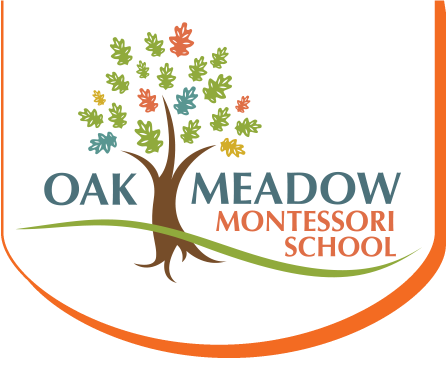Many students around the world participate in the Model United Nations Conference, typically as an elective or afterschool activity only available to a few students in each school. An important differentiator at Oak Meadow is that every middle school student takes part in this global curriculum as an integral part of our humanities program.
 Maria Montessori was a founder of The United Nations Educational, Scientific and Cultural Organization (UNESCO), and helped in the writing of “The Declaration of the Child,” ratified by the UN in 1959. Having lived through both world wars, Maria Montessori was heavily involved in the foundational beliefs of the UN. We continue to advance her commitment to developing peace education worldwide by developing a global perspective in our students at Oak Meadow.
Maria Montessori was a founder of The United Nations Educational, Scientific and Cultural Organization (UNESCO), and helped in the writing of “The Declaration of the Child,” ratified by the UN in 1959. Having lived through both world wars, Maria Montessori was heavily involved in the foundational beliefs of the UN. We continue to advance her commitment to developing peace education worldwide by developing a global perspective in our students at Oak Meadow.

All of Oak Meadow’s seventh and eighth grade students are in New York this week, representing different countries from around the globe, and presenting position papers on a variety of real-world challenges in collaboration with 1,300 students from Montessori schools worldwide. This is the culmination of a curriculum that started in October by investigating countries, cultures, governments, and comparative national world standings. In January, this work became more intense as students spent time daily crafting their position papers on specific global topics. On their final day in New York, students will sit in actual UN delegate seats at the United Nations General Assembly, and the final resolutions will then be sent to the UN Secretary General.
 When I met with students in New York today, I wondered about their individual growth in better understanding how people from very different political and cultural backgrounds can find common ground in solving problems that cross national borders and are truly global in nature. Here is what I heard from our students:
When I met with students in New York today, I wondered about their individual growth in better understanding how people from very different political and cultural backgrounds can find common ground in solving problems that cross national borders and are truly global in nature. Here is what I heard from our students:
- “Learning how to compromise with people, and adjust your ideas in order to find solutions that will work and be approved.”
- “Making compromises with people. I learned how to meet others half-way. It’s the only way the problems are going to be solved.”
- “You have to be patient with others, hearing all of the voices and other opinions.”
- “Making alliances with people representing different countries and cultures. This goes deeper than simply ‘I like your idea.’ It’s more like, ‘I respect your viewpoint.’”
- “Working with a limited deadline (we had two days) motivated us to compromise and arrive at workable solutions.”
- “I learned how to do better research–which really means doing more research. Dig deeper. Find out more.”
- “I found out that it would have been helpful to develop more counter arguments, so that I would have been even more prepared when someone makes a contrasting point.”
- “Through practice, I was able to get better at developing strategies for debating.”
- “This experience forced me outside of my comfort zone. I was nervous. I didn’t look forward to talking with others. Then I heard someone else speak, and I really agreed, so I met that person and now we are friends.”
- “Even if your idea isn’t the final solution, don’t back down. My solution did not end up being selected, but my ideas still had an impact on the conversation.”
- “If you don’t think your idea is a good one, don’t drop it altogether. I shared an idea with the group, and it didn’t immediately make an impression. I forgot about it, and then someone else tapped me on the shoulder, and reminded me of my idea. In the end, it turned out to be the solution the whole group adopted.”
- “I was afraid of getting up and doing a speech. But I learned, the more you speak up, the more fun you have.”
- “I didn’t want to speak. I was shivering. But once I was done, I realized it was easy and fun.”
- “I discovered the value or talking with others. The more friends you make, the more likely your ideas will be heard.”
- “Participate as much as you can. If you have ideas, say them. Doing that made me learn to have more confidence.”
 This comprehensive learning experience has been largely managed by our middle school humanities teacher, Lori Fox. “What I hope each student takes away from this experience,” Lori explained, “is a better sense of their connection to the world. Their voices are important, and their compassion is critical to the bigger society. In addition, I hope they recognize their inner talents and embrace the opportunity for growth in leadership, collaboration, and communication. They are growing as individual learners, and at the same time they are part of a much bigger picture.”
This comprehensive learning experience has been largely managed by our middle school humanities teacher, Lori Fox. “What I hope each student takes away from this experience,” Lori explained, “is a better sense of their connection to the world. Their voices are important, and their compassion is critical to the bigger society. In addition, I hope they recognize their inner talents and embrace the opportunity for growth in leadership, collaboration, and communication. They are growing as individual learners, and at the same time they are part of a much bigger picture.”





